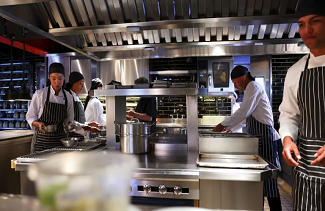
Food Safety Starts with Materials: The Hygienic Benefits of Stainless Steel
- Views:0
- Author:
- Publish Time:2025-08-29
- Origin:
In the food industry, safety and hygiene are non-negotiable. Choosing the right materials for food contact surfaces is crucial for protecting consumer health and ensuring compliance with safety standards. Stainless steel has emerged as a top choice due to its unique hygienic properties. Let’s explore why stainless steel is the gold standard for food safety and its numerous advantages in food processing environments.

Why Choose Stainless Steel for Food Contact?
1. Superior Hygiene
Stainless steel is inherently non-porous, preventing the absorption of bacteria and contaminants. This characteristic makes it easy to clean and sanitize, ensuring that food contact surfaces remain safe. Regular cleaning routines can effectively eliminate pathogens, promoting a healthier environment.
2. Corrosion Resistance
One of the standout features of stainless steel is its resistance to corrosion and rust. In food processing environments, exposure to moisture and various substances is inevitable. Stainless steel maintains its integrity and hygiene over time, ensuring long-lasting performance without compromising food safety.
The Hygienic Path of Stainless Steel
1. Material Composition
Food-grade stainless steel, such as 304 and 316 grades, is specifically designed for food contact. These grades contain lower levels of carbon and higher levels of chromium and nickel, enhancing their corrosion resistance and overall hygiene.
2. Compliance with Safety Standards
Stainless steel meets stringent food safety regulations, including those set by the FDA and EU. By choosing stainless steel products, businesses can ensure compliance with safety standards, minimizing the risk of contamination and enhancing consumer trust.
Benefits of Stainless Steel in Food Processing
1. Durability and Longevity
Investing in stainless steel equipment means investing in durability. It withstands wear and tear, maintaining its appearance and functionality over time. This durability translates to lower replacement costs and increased efficiency in food processing operations.
2. Versatility
Stainless steel is incredibly versatile, making it suitable for various applications in the food industry—from kitchen equipment and storage solutions to processing and packaging systems. Its adaptability ensures that it can meet diverse operational needs.
Discover Our Range of Food-Grade Stainless Steel Products!
Invest in stainless steel solutions that prioritize hygiene and safety in your food processing operations. Contact us today to learn more about our high-quality stainless steel offerings and how they can enhance your food safety practices!















